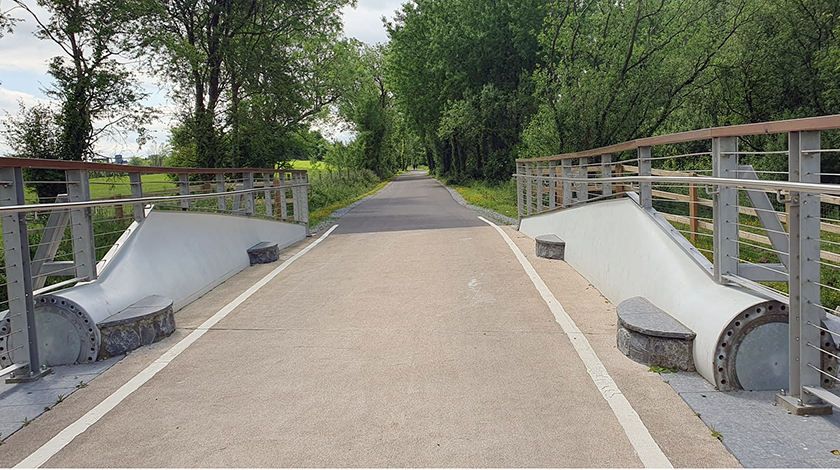End-of life of onshore wind infrastructure in the UK
Project details
Full project title: Exploring waste management opportunities and challenges from end-of-life of onshore wind infrastructure in the UK
Duration: August 2023-July 2025
Funder: Vice-Chancellor's Early Career Researcher Development Award
Project Leader for SPE: Dr Carla De Laurentis
Project summary
Most components of a wind turbine have long established recycling practices. Despite these high recycling opportunities, in reality, decommissioned wind turbines are not actually recycled at such rates.
From a waste management perspective, the most problematic and concerning materials for the end-of-life in wind turbines are
- the rare earth elements used in the permanent magnets used in modern generators, and
- the glass or carbon reinforced composites that constitute rotor blades, since there are currently no established recycling routes for composite materials.
While various technologies exist for the treatment and recycling of composite materials in blades such as mechanical grinding and pyrolysis, there is a recognition that these solutions might not be yet mature enough, widely available at industrial scale and/or cost competitive.
 As sites reach end-of-life, there is an urgent need to consider their future and address the difficulties associated with waste management and resource recovery. Very few onshore windfarms have been decommissioned to date, with significant lack of guidance and best practice.
As sites reach end-of-life, there is an urgent need to consider their future and address the difficulties associated with waste management and resource recovery. Very few onshore windfarms have been decommissioned to date, with significant lack of guidance and best practice.
The aim of this project is to explore what is happening to end-of-life of wind turbines with a particular focus on the technological and waste management opportunities and challenges emerging from decommissioned onshore wind infrastructure in the UK. This project asked the following questions:
- What are the emerging technologies and practices in waste management for decommissioned wind turbines in the UK?
- What lessons can be learnt from case studies of decommissioned wind turbines in the UK?
The specific objectives were to:
- map out the waste management practices for wind turbines in the UK and identify emerging technological opportunities and state of the art for the treatment and recycling of materials in wind turbines in the UK
- investigate two in-depth case studies of wind farms that are reaching/have reached end of life to identify emerging solutions, challenges and opportunities of decommissioning onshore wind projects in the UK
- develop a cross-disciplinary network, through bringing together actors from the renewable energy sector and beyond (including building and construction, electrical and electronics, waste) that could support the development of waste management reduction strategies and strong and competitive circular value chains
- develop practical insights in the form of a policy checklist for practitioners and policymakers to guide decision making to plan for waste management for wind projects.
Through case studies, the project contributed to gather evidence on the current practices and the innovation emerging in the sustainable waste management practices for wind turbines in the UK. The in-depth case studies included UK onshore wind farms that are approaching or have reached the end of their lifecycle and emerging technologies and innovations in recycling, reusing and repurposing components and materials.
The project served as a knowledge exchange platform to disseminate ideas and best-practices in the West of England area and beyond, engaging with a diverse range of organisations and professions and to build new relationships between the university, industries and innovators involved in the decommissioning of onshore wind energy projects.
Key outputs
The results of this study can be accessed following the links below:
- Tackling end-of-life challenges in wind infrastructure: innovations, insights, and future research pathways workshop report (24 June 2025) (PDF)
- When the turbines stop: strategies, opportunities and challenges for the management of end of life of wind infrastructure (10 September 2024) (PDF)
The project supported the creation of the Wind Energy End of Life Observatory (WEELO) designed as a collaborative platform to advance knowledge and understanding of end-of-life challenges in wind infrastructure.
Blade Bridge, Cork
A footbridge constructed from re-purposing wind turbine blades - research visit, May 2024.

Project contact
For further information on the project, please contact Dr Carla De Laurentis (carla.delaurentis@uwe.ac.uk).
You may also be interested in
Members of the Centre for Sustainable Planning and Environments (SPE)
Members of the Centre for Sustainable Planning and Environments (SPE).
Publications from the Centre for Sustainable Planning and Environments
Research publications from the Centre for Sustainable Planning and Environments (SPE)
Centre enquiries
Contact details for SPE.
